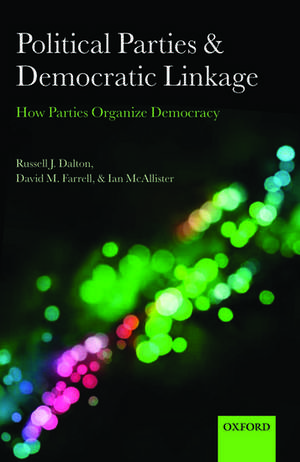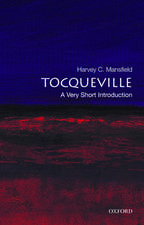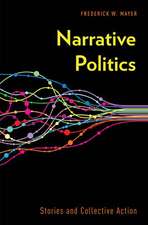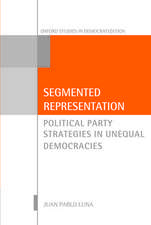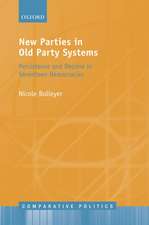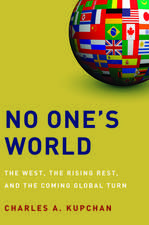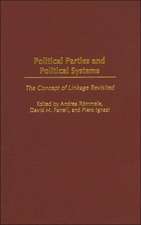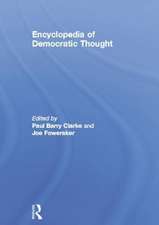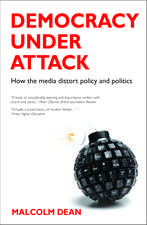Political Parties and Democratic Linkage: How Parties Organize Democracy: Comparative Study of Electoral Systems
Autor Russell J. Dalton, David M. Farrell, Ian McAllisteren Limba Engleză Hardback – 29 sep 2011
| Toate formatele și edițiile | Preț | Express |
|---|---|---|
| Paperback (1) | 295.34 lei 31-38 zile | |
| Oxford University Press – 27 iun 2013 | 295.34 lei 31-38 zile | |
| Hardback (1) | 774.10 lei 31-38 zile | |
| OUP OXFORD – 29 sep 2011 | 774.10 lei 31-38 zile |
Preț: 774.10 lei
Preț vechi: 1049.53 lei
-26% Nou
Puncte Express: 1161
Preț estimativ în valută:
148.12€ • 154.65$ • 122.59£
148.12€ • 154.65$ • 122.59£
Carte tipărită la comandă
Livrare economică 24-31 martie
Preluare comenzi: 021 569.72.76
Specificații
ISBN-13: 9780199599356
ISBN-10: 0199599351
Pagini: 258
Dimensiuni: 151 x 236 x 28 mm
Greutate: 0.54 kg
Editura: OUP OXFORD
Colecția OUP Oxford
Seria Comparative Study of Electoral Systems
Locul publicării:Oxford, United Kingdom
ISBN-10: 0199599351
Pagini: 258
Dimensiuni: 151 x 236 x 28 mm
Greutate: 0.54 kg
Editura: OUP OXFORD
Colecția OUP Oxford
Seria Comparative Study of Electoral Systems
Locul publicării:Oxford, United Kingdom
Recenzii
this is an important and germane book that significantly contributes to the debate on the role of political parties.
Political Parties and Democratic Linkage offers a valiant defence of the often lamented role of parties in contemporary democratic processes. Dalton, Farrell and McAllister argue that despite their poor public image, parties still dominate elections, that newly incumbent governments are more closely connected to citizen preferences than their predecessors in office, and that voter opinion, operating through parties, matters for policy outputs. This is an important book for students of parties as well as for students of democracy.
Political Parties and Democratic Linkage offers a valiant defence of the often lamented role of parties in contemporary democratic processes. Dalton, Farrell and McAllister argue that despite their poor public image, parties still dominate elections, that newly incumbent governments are more closely connected to citizen preferences than their predecessors in office, and that voter opinion, operating through parties, matters for policy outputs. This is an important book for students of parties as well as for students of democracy.
Notă biografică
Russell J. Dalton is the founding director of the Center for the Study of Democracy at UC Irvine. Dalton has been awarded a Fulbright Research Fellowship, Scholar-in-Residence at the Barbra Streisand Center, German Marshall Fund Research Fellowship, and the POSCO Fellowship at the East West Center in Hawaii. He is a Professor of Political Science at the University of California, Irvine. David M. Farrell is a specialist in the study of parties and electoral systems, he is founding co-editor of Party Politics and co-editor of the ECPR/Oxford University Press series, Comparative Politics. He is Professor of Politics and Head of the School of Politics and International Relations at University College Dublin. Ian McAllister has been director of the Australian Election Study since 1987, and was Chair of the Comparative Study of Electoral System project from 2004 to 2009. He is a Fellow of the Academy of Social Sciences in Australia and a Corresponding Member of the Royal Society of Edinburgh. He is Distinguished Professor of Political Science, Australian National University.
